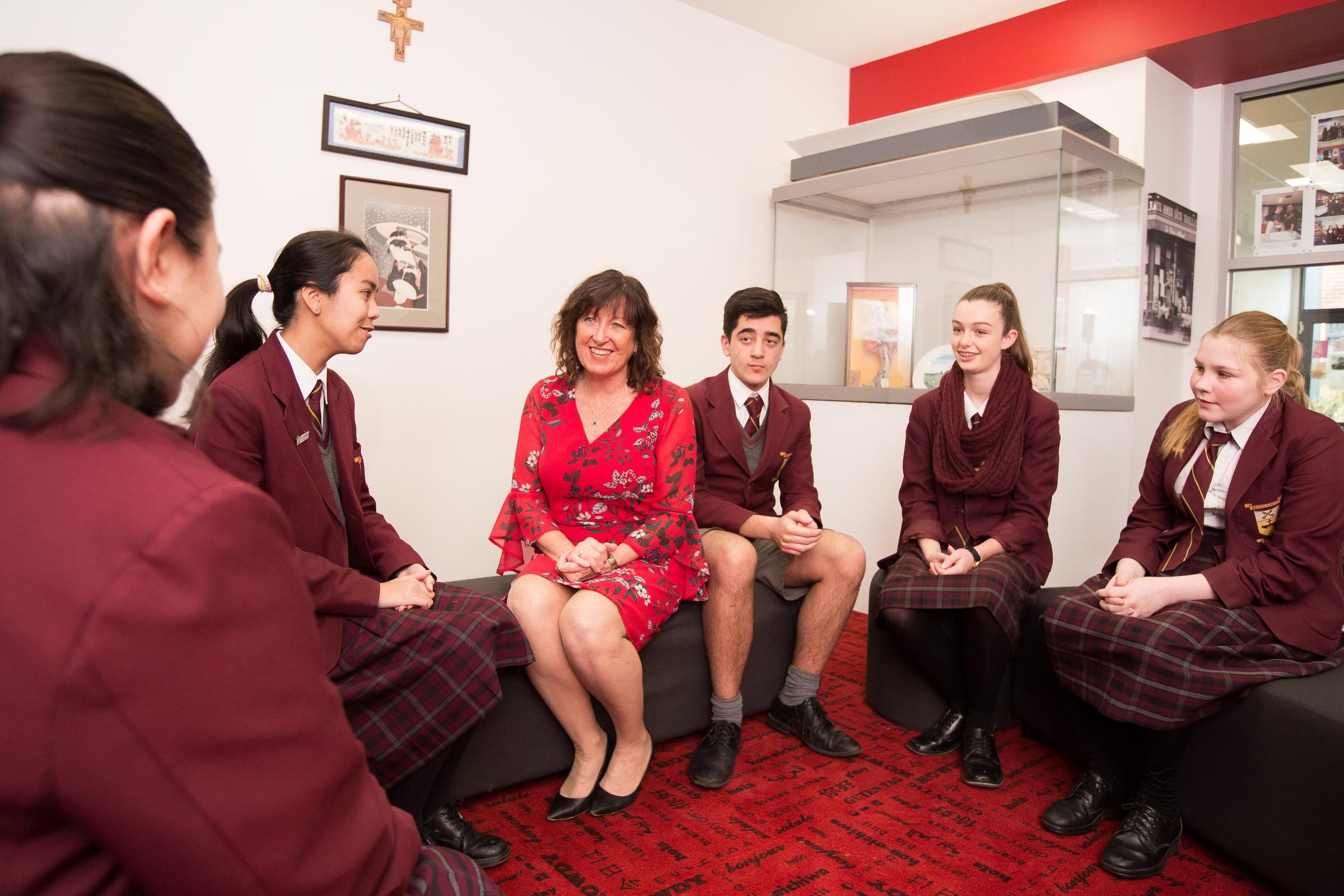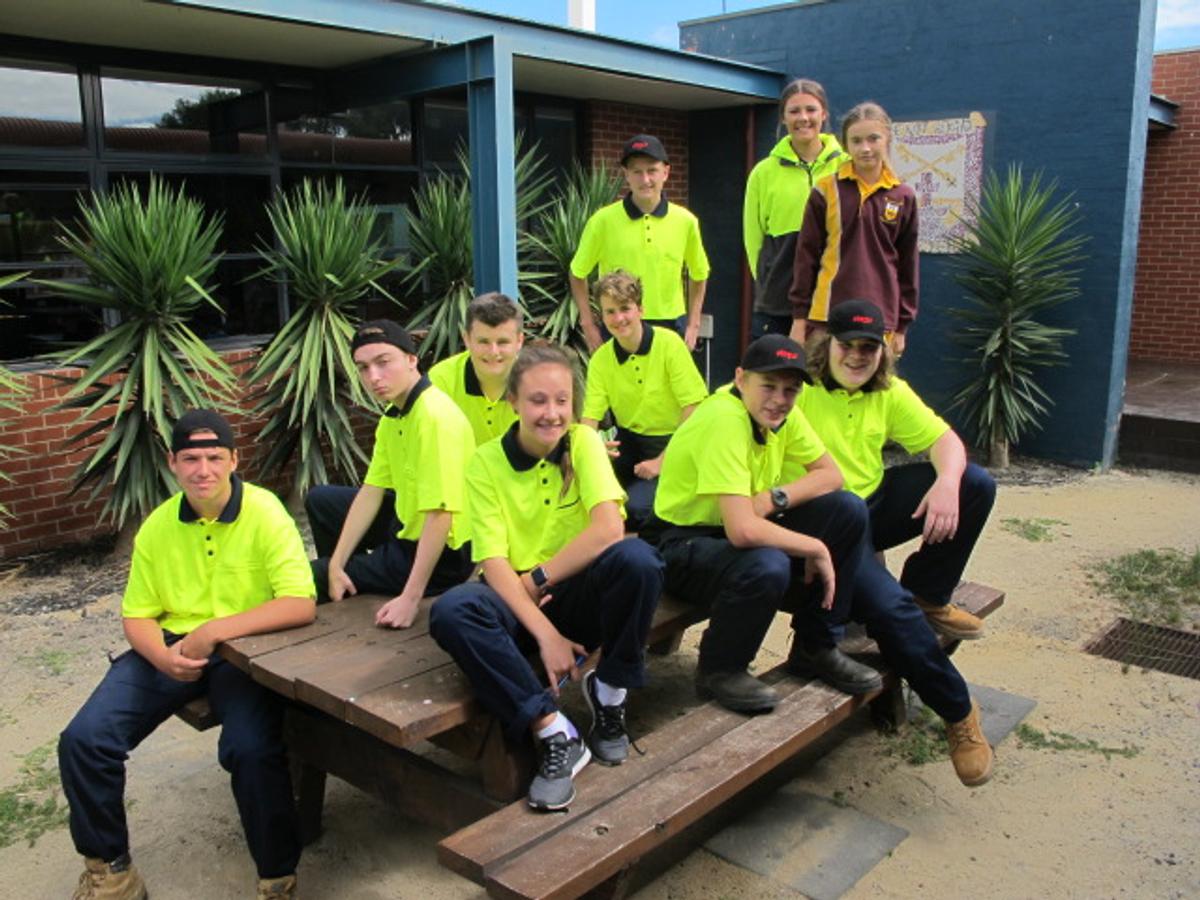Learning & Teaching News

Let’s keep in Touch !
It was wonderful to see the large numbers of Parents attending the College Welcome Evening last week. As the year rolls on lets keep in touch. The move to high school sees the parent teacher relationship shift. But it is still important. I know when I asked my son each night what he did at school the answer was often “ Nothing” !!! Parents are encourages to keep the communication flow up and to contact the College if any concerns arise.
Last year I shared an Australian Government App called Learning Potential, which gives excellent tips for staying connected with Secondary Education.
Included below is an extract which provides advice for parents on how to keep up the conversation with teenagers.
If you’ve tried the tips in our ‘How to ask your teen about school’article and the conversation is still not flowing, don’t despair! These tips will help you dig deeper into what’s going on.
Talk about when to talk
At the end of the school day, your teen has just experienced a full day of mental, physical and social stimulation. Some teens feel energised and chatty, but others are exhausted. The last thing they feel like is talking about their day.
If this is the typical pattern for your teen, find an opportunity when they seem happy and open a conversation about it. For example:
‘I notice that you don’t like me asking about school when you’ve just got home. It reminds me of my high school days – my sister was really chatty at the end of the day, but I needed some time to myself before I was ready to talk to anyone at home. Is that how you feel too?’
If your teen says yes, ask when they would prefer to chat with you, for example:
- after they’ve had a snack
- after they’ve had some time by themselves to unwind
- when you’re doing something else together – eg walking the dog, cooking dinner, driving to school in the morning.
Conversations like these develop your teen’s emotional intelligence by helping them to be aware of the relationship between energy levels, moods and feelings. It’s also great role modelling.
Take the pressure off
When a teen is not up to talking, even a simple greeting like ‘How are you?’ can feel to them like pressure. Try using a statement rather than a question – it takes the pressure off, while still showing that you care. Here are some ideas:
- ‘Hi, welcome home! I’ve put a snack for you on the table.’
- ‘Hi, it sure is hot isn’t it! Come have a cold drink to cool down.’
- ‘Hi, I hope your class presentation went well today. Tell me about it later when you’re ready.’
Chit chat
Do you feel awkward travelling with your teen if they don’t want to talk? There’s no need for you to stay silent! There are plenty of things you can chat about, even if you’re the only one talking. It may feel like your teen isn’t listening, but your idle chatter is still building your relationship, showing that you care, and role modelling conversation skills.
Sometimes your teen might join in the conversation, but don’t push for it. Just chat away about something like:
- your day – a meeting you had, something you read, a conversation you had
- family plans – what’s for dinner, what you’re going to do on the weekend, when your family are coming to visit
- thoughts, memories and conversations (especially about your teen) – ‘I saw a photo of a beach today and it reminded me of our first holiday at the coast. Do you remember that huge sandcastle we built? You were so excited…’.
If you don’t feel like talking, that’s okay too. ‘I’m exhausted today. Let’s listen to some music on the way home.’
Be an ‘active’ listener
When your teen does feel like talking, it’s important to make sure that they enjoy the conversation, so remember the ‘golden rules’ of listening:
- show your teen that you are giving them your attention (put down your electronic devices!)
- listen to and empathise with their feelings – ‘Wow, that must have been exciting!’
- avoid the temptation to tell them what to do – ‘That must have been stressful. How did it make you feel?’ https://www.learningpotential.gov.au/teen-talk-its-deep
PATHWAYS TO SUCCESS
2019 sees the inaugural Year 10 VCAL class commence at St Peter's. These students already have a clear idea of the career pathway they wish to follow and have opted to complete the Victorian Certificate of Applied Learning.
As part of the VET component students this week commence a Cert II in Parks and Gardens. The group are also completing a Fire Safety Certificate.
Improving your Students Literacy
As Year 7 & 8 students embark on their Reading Program for 2019 there are important ways
Parents and carers can give valuable support in strengthening their student’s reading habits
and assist them to strengthen their literacy and communication skills for senior years and for
life!
Parents should encourage students to read widely and read books in different genres
that gradually increase in length and complexity of story line. Students are easily able to
investigate and choose from the St. Peter’s Library catalogue link on the left menu of their
SchoolBox page (see screenshot) and students are urged to also ask their Teacher Librarian
or Library staff for assistance in making choices.
Parents are encouraged to read with, and to, their children, and ask questions about their
reading with open-ended questions such as “Tell me about the main characters?” or “Tell me
what’s happened so far?” Students should read in a comfortable quiet area at least 20 min
per night 3 or 4 nights per week, free from ‘screen time’. Students can select books from
either their own book-shelf, the St. Peters College Libraries or their local Public Library (free
to join). Most of all make reading time an enjoyable, relaxing and predictable time to
encourage reading and to talk about books together!
Joyce Sendeckyj
Teacher Librarian
Mrs Marlene Jorgensen
Deputy Principal - Learning and Teaching

